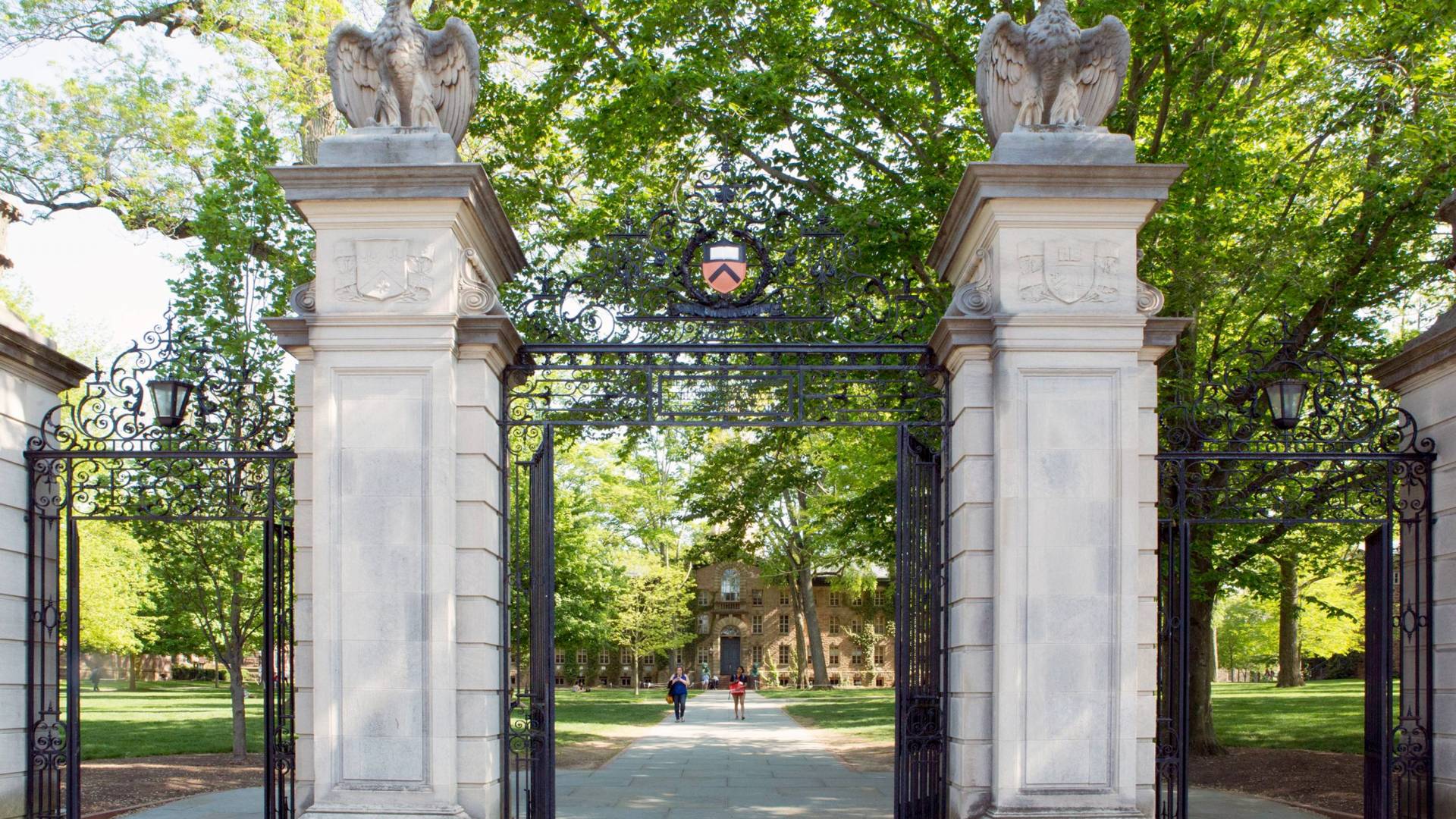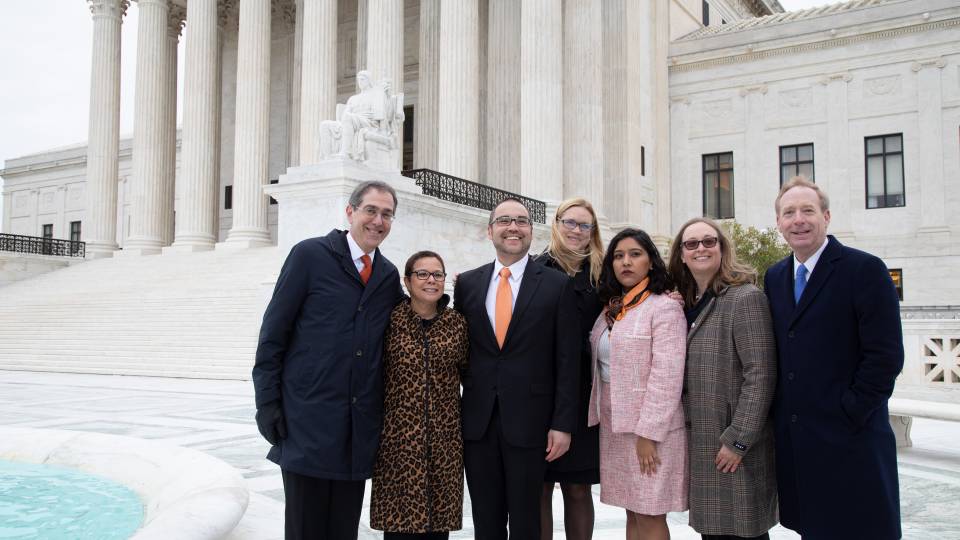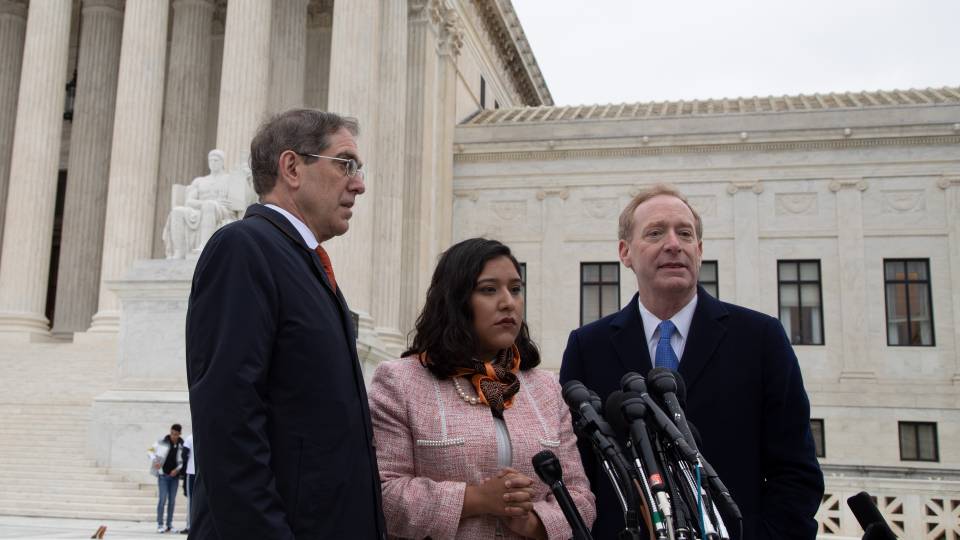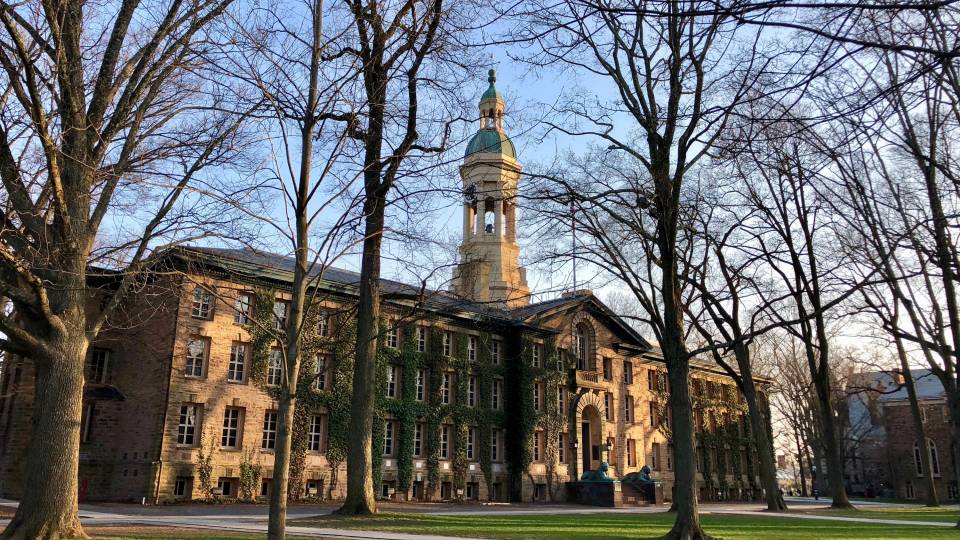Princeton University and Microsoft have issued statements on the U.S. Supreme Court’s decision to review cases regarding the Deferred Action for Childhood Arrivals (DACA) program. The Supreme Court announced June 28 that it will hear arguments during its next term, which starts in October.
Princeton University Spokesperson Ben Chang said: “As we have said before, DACA is a wise and humane policy that benefits this country in multiple ways. It has allowed talented and motivated students — including plaintiff and Princeton graduate Maria Perales Sanchez — to pursue educations and contribute positively to our country. Eliminating protections for Dreamers would be a mistake and we continue to urge Congress to enact a permanent legislative solution to protect them.”
Microsoft President Brad Smith said: “Dreamers make our country, community and company stronger, and their protection is both a humanitarian obligation and an economic imperative. Today’s decision means the clock is now running, with even more reason for Congress to act.”
Perales Sanchez said: "Today, we receive the news that the Supreme Court will take the DACA case in the midst of heightened inhumanity against migrant and asylum-seeking communities. I reaffirm that the undocumented community and our allies are committed as ever to asserting migrant justice and advancing our rights as human beings."
In November 2017, Princeton University, Microsoft and Perales Sanchez (who graduated from Princeton in 2018) filed a lawsuit challenging the federal government’s termination of the DACA program. Since then, several district courts and courts of appeal have ruled that the government’s decision to rescind DACA was unlawful.
Princeton has been a leading voice among higher education regarding immigration issues. President Christopher L. Eisgruber joined hundreds of colleges and universities in issuing a statement supporting DACA in 2016, and he advocated for the continuation of the DACA program in an August 2017 letter to President Donald Trump. Eisgruber also urged members of Congress to pass legislation that would provide legal status for immigrants living in the United States under Temporary Protected Status.
This spring, Eisgruber and higher education leaders across New Jersey sent a letter to the state’s Congressional delegation about the obstacles their institutions face in attracting and retaining international faculty, students and staff. Princeton also expressed concern for international students who continue to be impacted by governmental delays in approving Optional Practical Training (OPT) for employment and internships in the United States.








